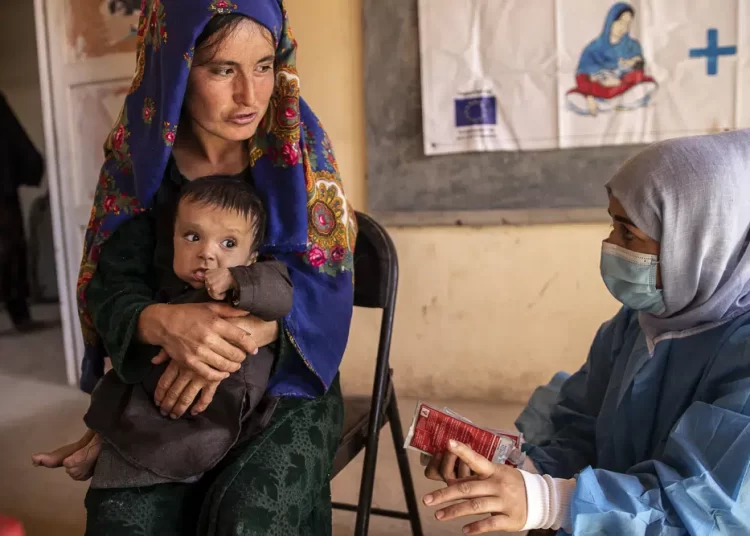KABUL, Afghanistan — Last June, a team of female doctors and nurses drove six hours across mountains, dry riverbeds and on unpaved roads to reach victims of a massive earthquake that had just hit eastern Afghanistan, killing more than 1,000 people, according to AP.
When they got there, a day after the earthquake hit, they found the men had been treated, but the women had not. In Afghanistan’s deeply conservative society, the women had stayed inside their tents, unable to come out to get medical help and other assistance because there were no women aid workers.
“The women still had blood on them,” said Samira Sayed-Rahman, from the aid agency International Rescue Committee. It was only after she met local elders to tell them about the arrival of a female medical team that women came out to get treatment. “That’s not just the situation in emergencies; in many parts of the country, women don’t go out to get aid,” she said.
It’s an example, Sayed-Rahman said, of how vital women workers are to humanitarian operations in Afghanistan — and shows the impact that will be felt after the Taliban last month barred Afghan women from working in non-governmental organisations.
The ban, announced December 24, forced a widespread shutdown of many aid operations by organisations that said they cannot and would not work without their female staff. Aid agencies warn that hundreds of thousands are already hurt by the halt in services and that, if the ban continues, the dire and even deadly consequences will spiral wider for a population battered by decades of war, deteriorating living conditions and economic hardship.
Aid agencies and NGOs have been keeping Afghanistan alive since the Taliban seized power in August 2021. The takeover triggered a halt in international financing, a freeze in currency reserves and a cut-off from global banking, collapsing the already fragile economy. NGOs have stepped into the breach, and providing everything from food provisions to basic services like health care and education.
After the ban, 11 major international aid groups along with some smaller ones suspended their operations completely, saying they cannot operate without their women workers. Many others have reduced their work dramatically. A post-ban survey of 151 local and international NGOs found that only about 14 per cent were still operating at full capacity, according to UN Women.
UN agencies have continued working – most vitally to largely maintain the food lifeline that is keeping millions of Afghans out of starvation. Despite the ban, the World Food Programme provided food staples or cash transfers for food to 13 million people in December and the first week of January — more than a quarter of Afghanistan’s population of some 40 million.
The extent of the ban’s implementation and enforcement is unclear. In some places, some women have been able to continue working in the field.
Still, the impact is already great, agencies say.
The International Rescue Committee, which has suspended all its operations, estimates that around 165,000 people missed out on its health services between December 24 and January 9. It warned of an increase of death and disease because of the ban and an increased burden on Afghanistan’s health system, which it said is “already fragile, near-to-collapse, and NGO-dependent.”






Discussion about this post